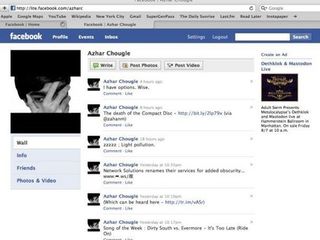Facebook: the big questions
Cat Lee talks Translations, the future of the site and how Facebook will be everywhere
TR: How long does it take for somebody to take Facebook Connect and create something with it?
CL: What we try to give brands is two types of Connect invitations: simple and advanced. Simple is literally one line of JavaScript and you have Facebook users and comments within your widgets.
Advanced is personalisation, registration and social filtering. That takes a lot more integration. It is still specific to the site, so we've seen this developed over a weekend and for some it will take several months.
TR: What's Facebook's take on Twitter at the moment?
CL: When it comes to Twitter, there is space in the marketplace for two. What it does mean is people are becoming more socially aware on the web. But what it comes down to is innovation and the site's that innovate are the ones that are most likely to survive.
TR: There's always a lot of reactions to changes to the homepage, is this a positive or negative thing?
CL: The philosophy of Facebook is to continue to give users the best experience. Users in general are reluctant to change.
Get daily insight, inspiration and deals in your inbox
Get the hottest deals available in your inbox plus news, reviews, opinion, analysis and more from the TechRadar team.
But we strive to innovate and to be relevant to users and that's what you saw in the redesign. We are simplifying the experience and making sure that it's easier for users to use. It's all about the core elements of Facebook, identity and connections.
We are not doing it to spite our users, we have their best intentions in mind.
TR: Do you see mobile phones as being the device on which Facebook will be most viewed?
CL: There is a trend towards mobile devices, with things becoming more portal. The trend is not just towards mobile phones but people are willing to take their Facebook identity and bring that wherever they are. Whether this is watching TV, on the computer, you want your friends there and you want to represent yourself in a way that's meaningful and whether that's through mobile phones or whatever that's what Facebook is striving to do.
TR: Will there ever be a button on Facebook that changes the homepage to Facebook Lite?
CL: We are treating those as separate things, as Facebook Lite is for users in developing countries without access to quick network speeds. So we have no plans for this.
You can go to Facebook Lite if you want to, but it was only every intended to help people in, say India, to have access to Facebook.
We don't believe that all users will be on Facebook.com. So we want to keep the key things the same; whether it's on a mobile phone or anywhere else, we have to take the core elements and take them to all strands of Facebook.
We also don't see ourselves as just a social-networking site, we are a technology company and we are going to consistently expose many of our core technologies to developers to enable them to do things.

TR: What's Facebook's policy of checking Facebook at work?
CL: It's integral to our work. If we don't use the platform then how can we develop it?
TR: So, you don't see it as slacking off?
CL: Definitely not slacking, it adds to the value of our work!
If you want to learn more about Translations, then point your browser to Facebook's Translation page.
Marc Chacksfield is the Editor In Chief, Shortlist.com at DC Thomson. He started out life as a movie writer for numerous (now defunct) magazines and soon found himself online - editing a gaggle of gadget sites, including TechRadar, Digital Camera World and Tom's Guide UK. At Shortlist you'll find him mostly writing about movies and tech, so no change there then.

